On Saturday July 2nd, a collaborative team of IMSR researchers took part in public engagement activities at CoCoMad Festival. This is a free annual community festival held in Cotteridge Park about 2.5 miles away from the University. The festival attracts over 6000 people each year for its fun range of outdoor activities.
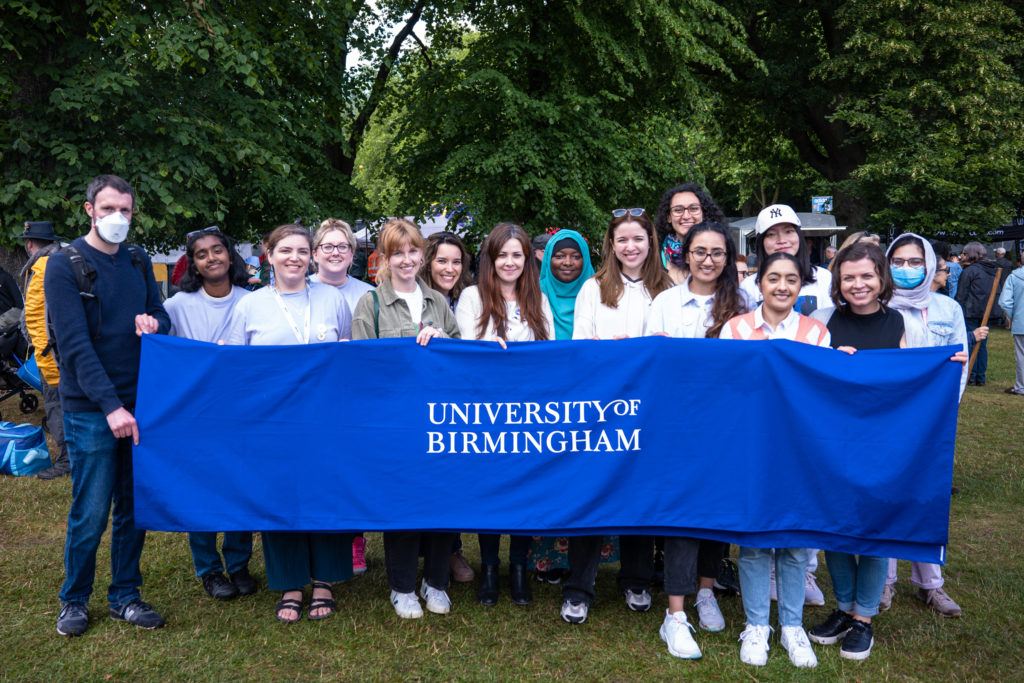
IMSR’s involvement in the festival was coordinated by our Community & Public Engagement Manager, Caroline Gillett, and the IMSR Community Action Team (CAT) who aided with planning. Many CAT members also took part directly on the day. We would like to thank Friends of Cotteridge Park for their fantastic work organising the festival as a whole.
Our aims were to:
- Collaborate across IMSR research groups for joint public engagement – team building & strengthening our engagement skills whilst in the process of having fun and opening dialogue with the public.
- Raise awareness of IMSR research through creative and family-friendly activities designed to engage and inspire local communities off campus. We go out to communities, rather than expecting them to come to us.
- Promote science and diversity within science careers as an integral part of society, representing science alongside the many other festival activities at the festival such as music, food or arts. We emphasize how anyone regardless of background can do science..
In total we had 4-5 different research groups involved, each contributing different activities and/or supporting each other on the day. Activities included:
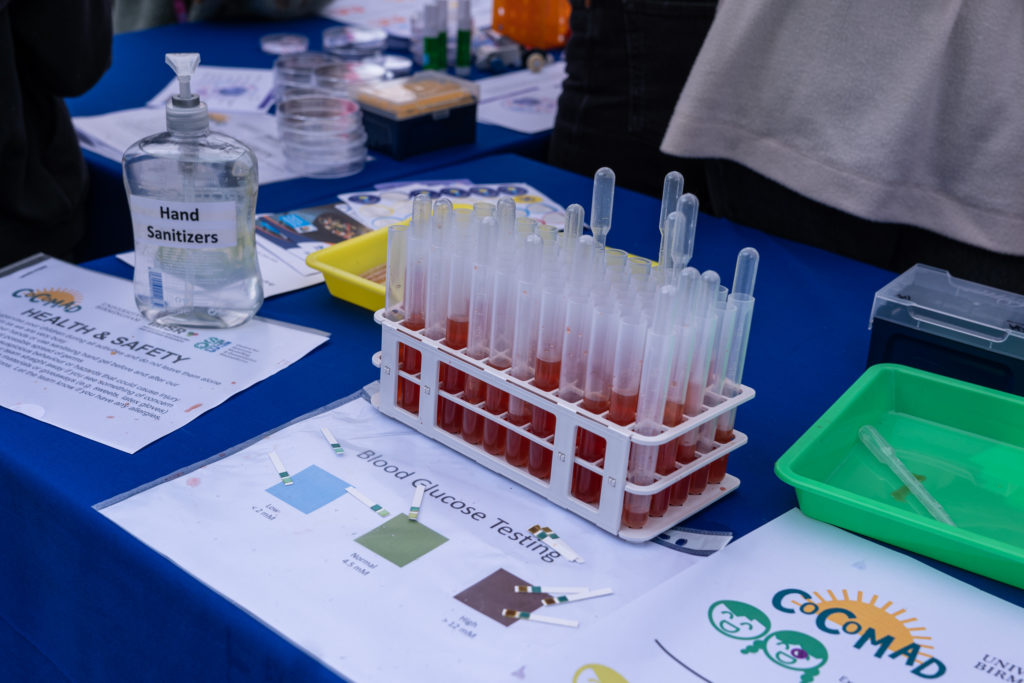
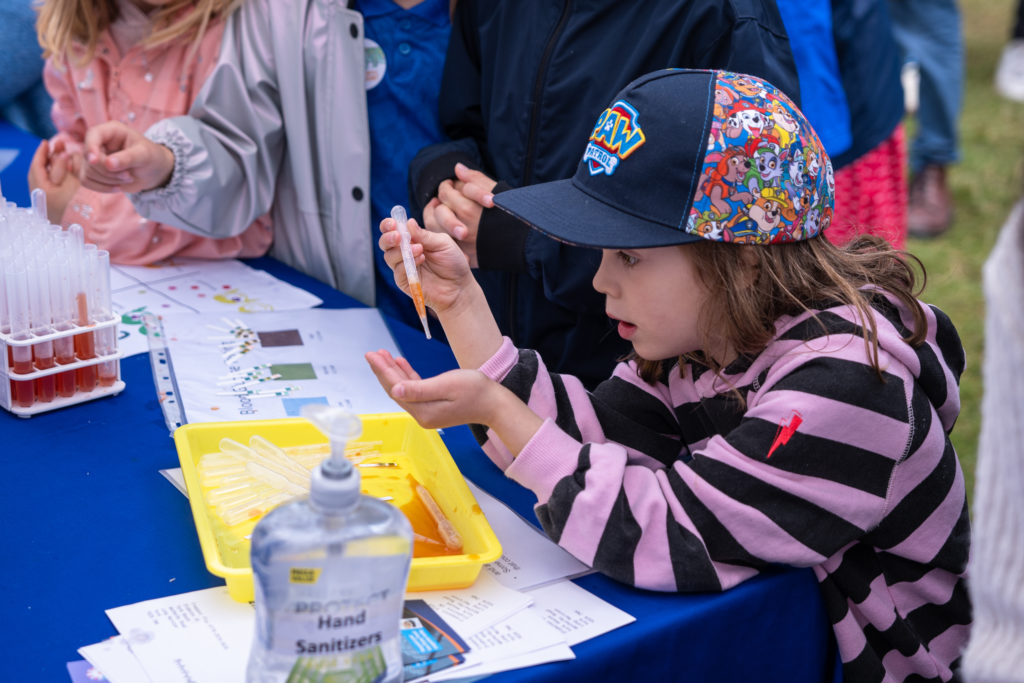
Blood Glucose Monitoring: Using a demo designed for Society for Endocrinology by none other than IMSR’s own Fiona Docherty, a team coordinated by Fiona took part in delivering a mini science experiment. Tanya Kaur, Tasmiyah Akhtar and Christina Clavelo-Farrow invited visitors to use glucose testing strips to check the sugar levels of different blood samples (made from water, red food colouring, dextrose powder) and to adjust levels using insulin (actually just water which diluted the sample) if too high or sugar (dextrose powder) if too low. This enabled the team to talk to children and parents about the role of hormones in regulating blood sugar and how conditions like type 2 diabetes can develop through imbalance. The team were also able to discuss why eating sugary sweets in moderation is important and useful leaflets from Diabetes UK were available for people to take away… especially important because coincidentally our stall was right next to Mondelez’s (Cadbury’s) chocolate stall!
Cell Science: Daniela Nasteska, Cristina Escribano-Gonzalez & Rebecca Westbrook hosted a suite of activities to share why cells are cool and why we study them in science. Visitors were invited to build their own cell to take home with them using a petri dish (playing the part of a membrane) and collage materials depicting different cell components such as mitochondria, nucleus and organelles. Visitors could also use special glasses to view images of cells fluoresce and there was even a beta cell jigsaw puzzle for very little ones and a wooden scale set to visually explain why hormone regulation (insulin and glucose) is important. These activities enabled the team to talk about common lab methods such as fluorescence, microscopy and how and why cells are grown in the lab for experiments.
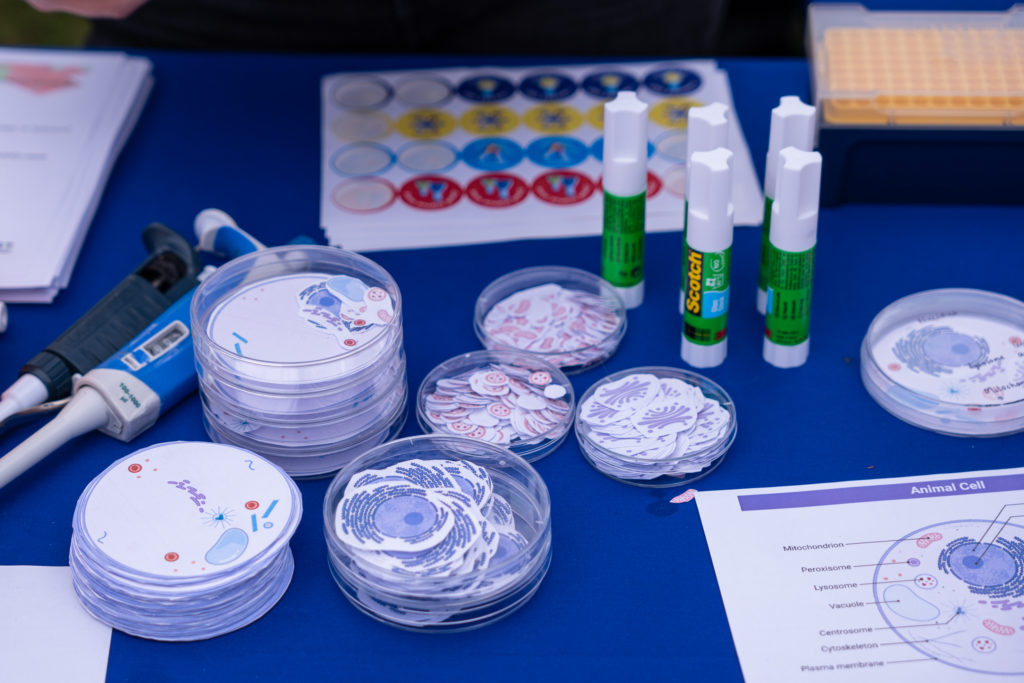
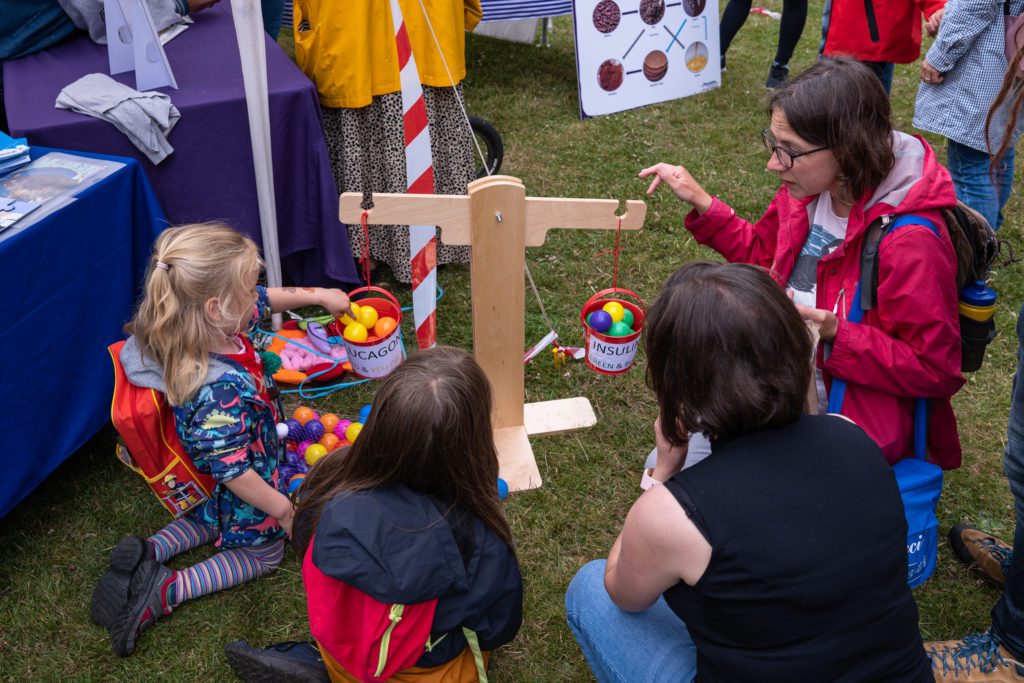
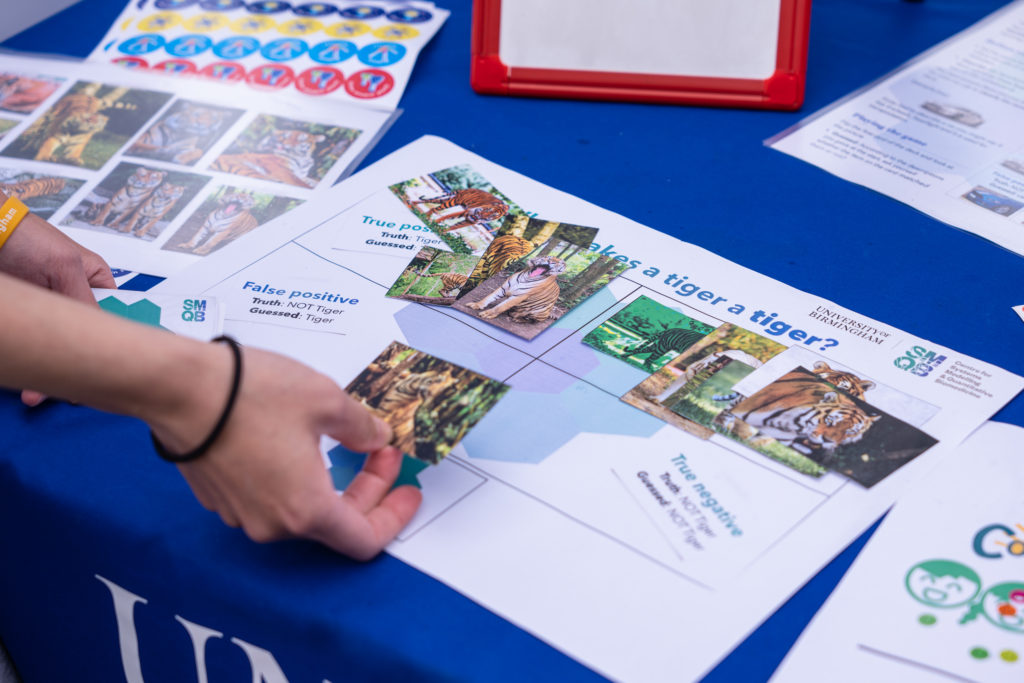
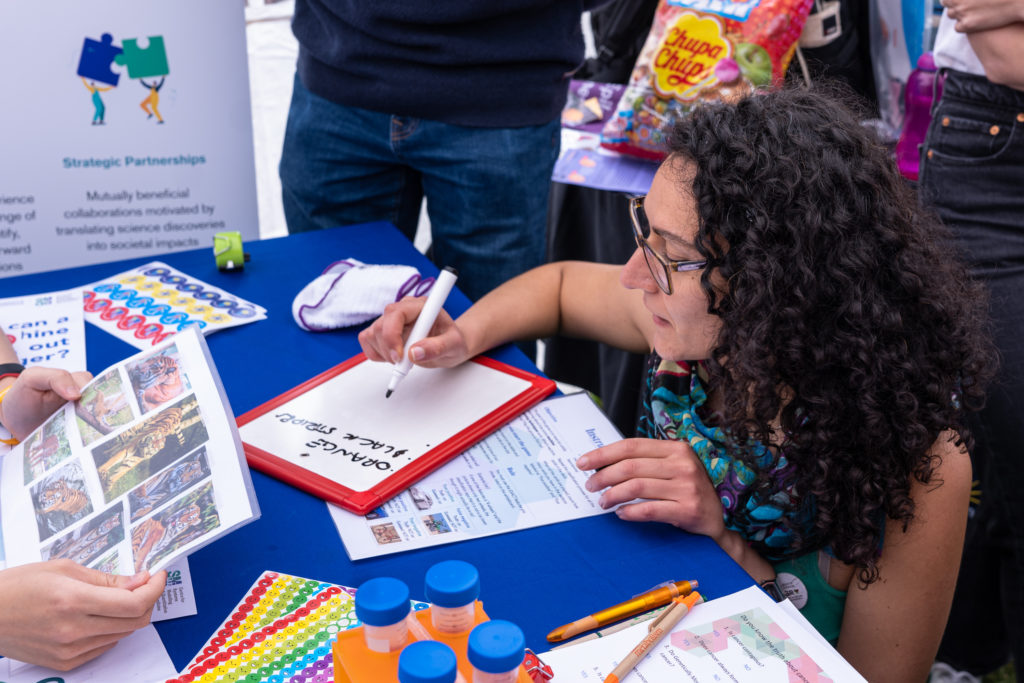
Machine Learning with Tigers: It’s never too early to engage young people with mathematics and computing, and this is what the SMQB team set out to do. They aimed to show how these techniques are also valuable for medical and healthcare challenges. Working from an initial idea from CAT member Luke Tait, colleagues in the SMQB decided to develop a playable card sorting game involving tigers. Isabella Marinelli took the lead on the design and look of the game, with Paul Roberts and Yingjing Feng also coming on board to support testing and delivery at the festival. The game involves asking players to describe the features of a tiger before using these same features to classify a group of 25 new cards. If the features are too broad or too specific, false positives and false negatives arise which enabled the team to talk to visitors about the power of quantitative approaches but also important concepts such as specificity, overfitting, data quality etc.
PCOS Awareness: 1 in 10 women has polycystic ovary syndrome (PCOS), yet many go undiagnosed or are completely unaware of the increased risk of developing other conditions such as type 2 diabetes and non-alcoholic fatty liver disease. Wellcome Trust DAISy-PCOS researchers Thais Rocha and Wiebke Arlt working alongside lived experience DAISy-PCOS Leaders were there to answer questions and collect views and current awareness about PCOS using a ping-pong ball quiz, which highlighted how much misinformation and stigma still exists. Special thanks to our DAISy-PCOS Leaders Sunila, Symone, Amna, Maurie, Khadijat and Aisha for their incredible help and enthusiasm. We are also grateful to Wellcome Trust for funding the public engagement and to Verity – The UK PCOS charity for also supporting us with some extra leaflets to share on PCOS and community support for those affected.
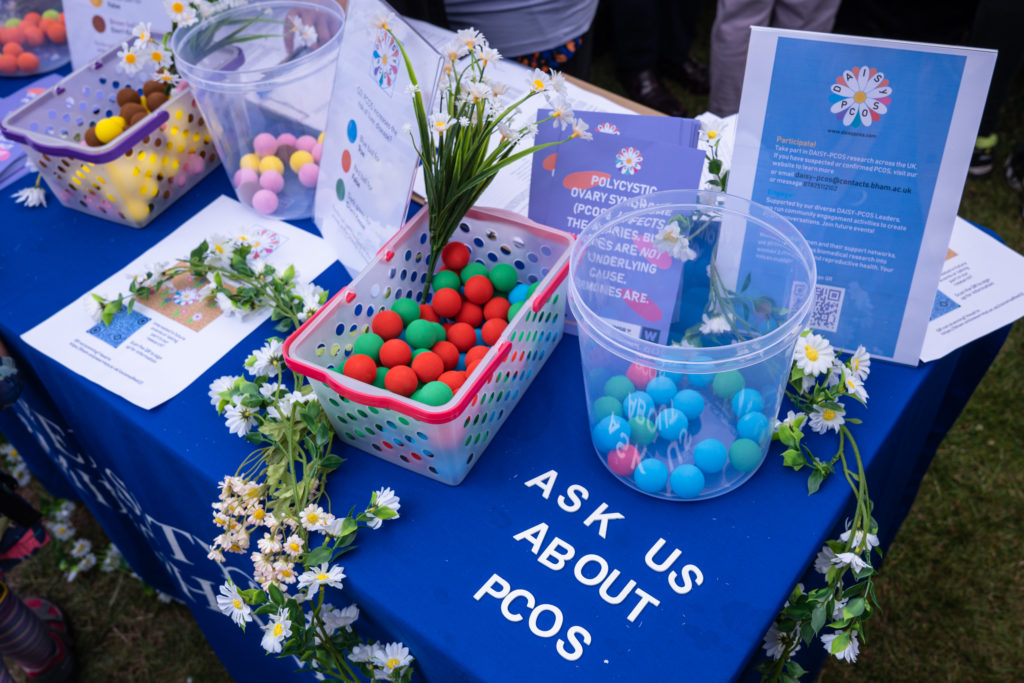
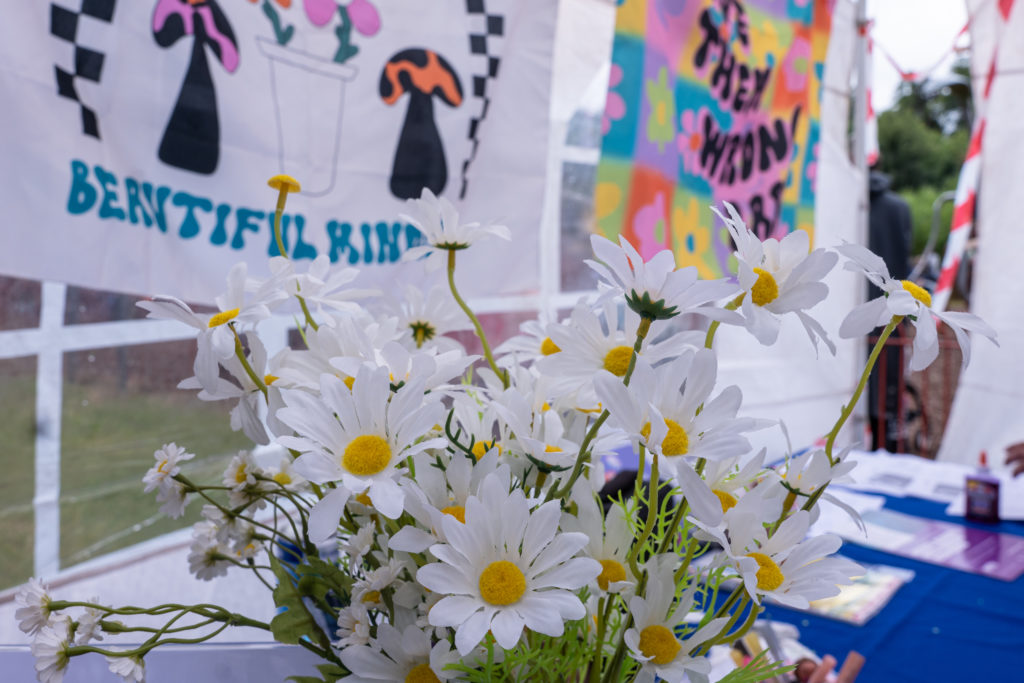
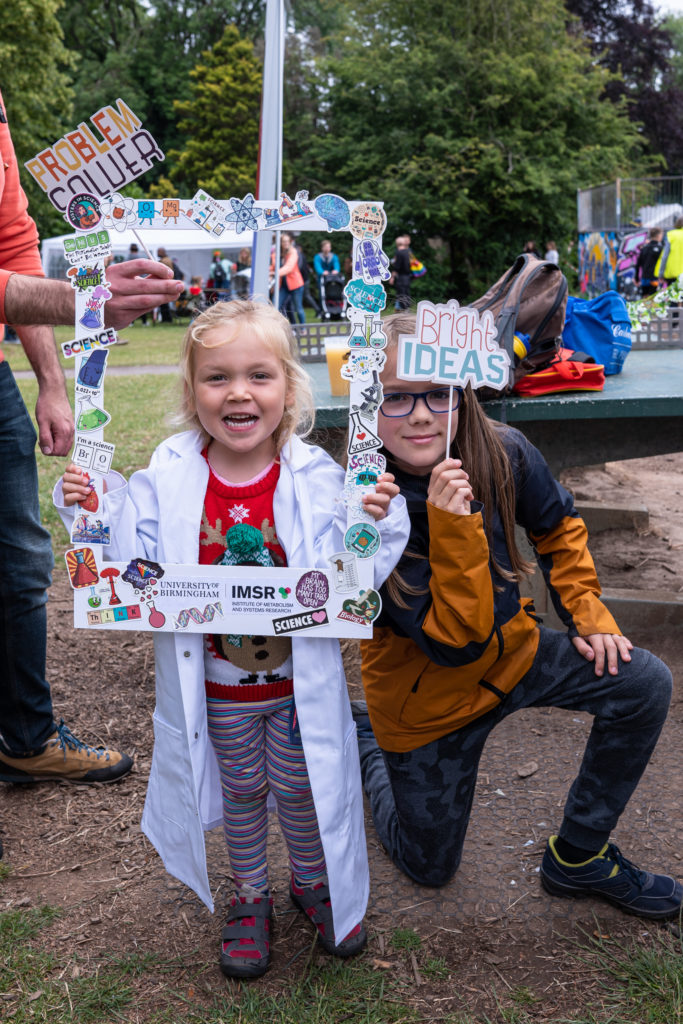
Science Selfies (just for fun!): We also has a science dress up box just for fun which including lab coats for kids, goggles, anatomical model and various other bits, as well as a photoframe for budding future scientists!
Thanks to everyone who let us borrow items for this and to admin superstar Christine Llyod who helped Caroline with ordering various bits to pull the event together.
Despite the rain, we were pleased that our We Are IMSR activities at CoCoMad managed to engage approximately 1000 children, parents and other adults in total thanks to our great central location within the park. We also asked teams to collect quick feedback on their activities so that they can make improvements where needed and celebrate successes. We were really pleased to see lots of lots of positive feedback from those who took part!
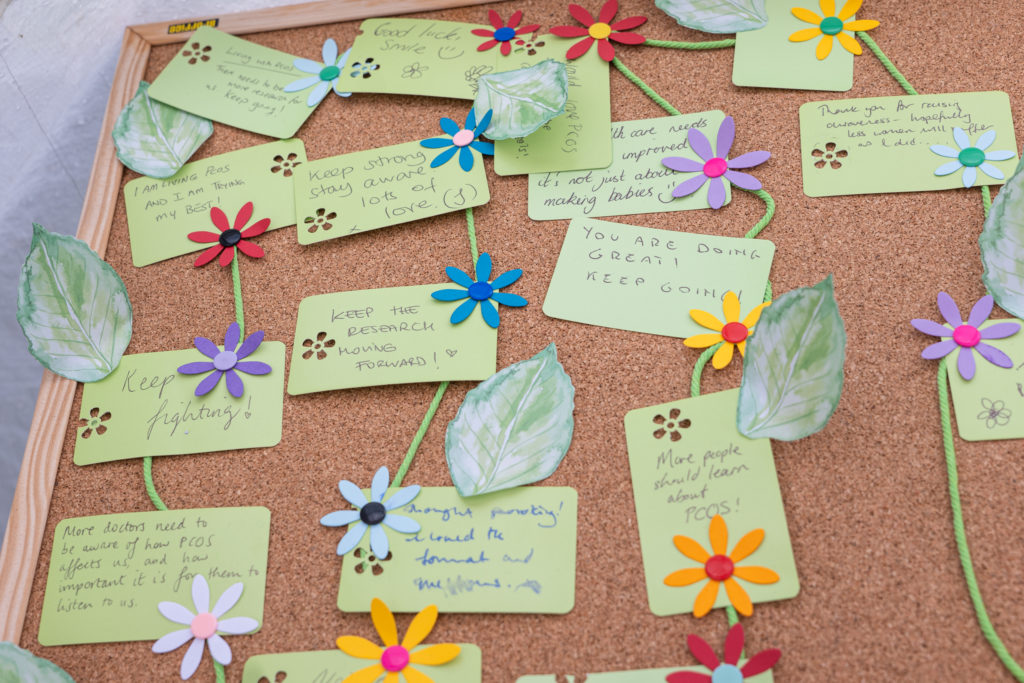
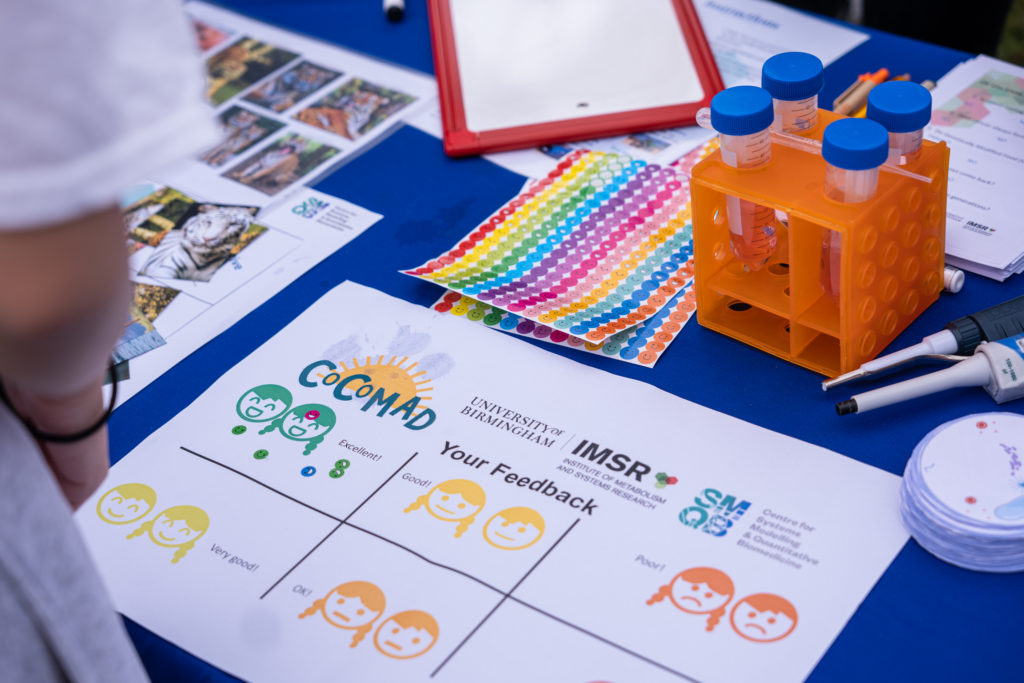
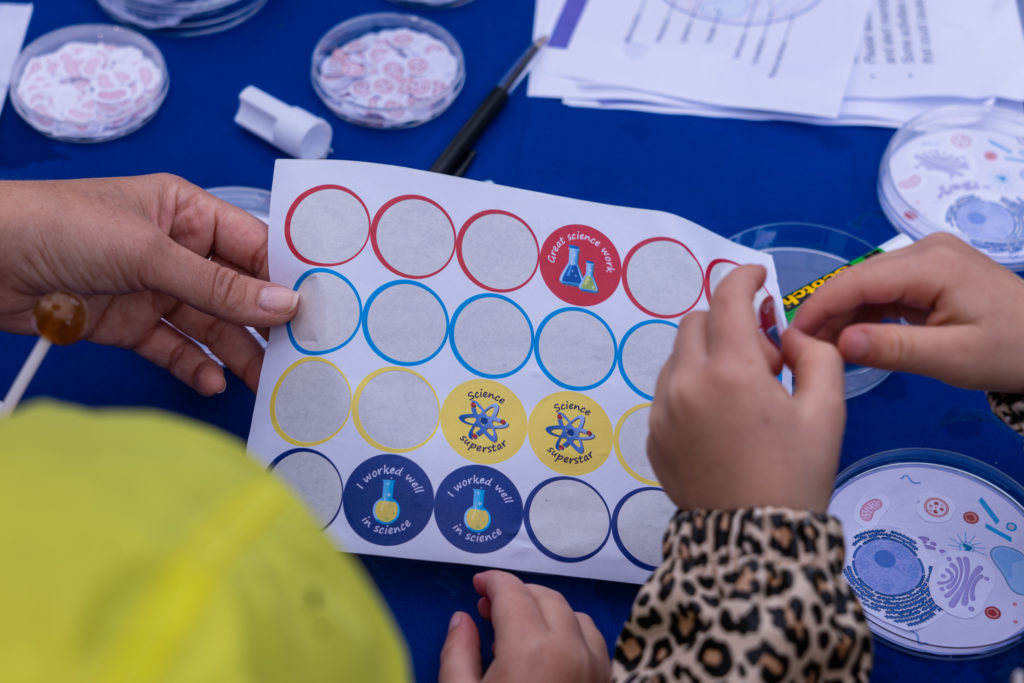
We were also very pleased with the representation of IMSR volunteers involved – although we would love to have some more men next time to even out the gender balance! Unfortunately we had a couple of people who fell ill with coronavirus at the last minute and therefore couldn’t make the event, which made this gender imbalance even worse. However, Caroline has already discussed representation with the IMSR Executive Committee and we hope that next year we will be able to take part again, with even more of our colleagues of all genders, ethnicities and backgrounds – so that we can show how science is borderless, diverse and welcoming to all!
Photography credit: Hayley Salter for IMSR. Thank you, Hayley! Photographs are property of IMSR and should not be used without permission or without crediting the photographer. Photo consent was obtained for children’s portrait photos.


































